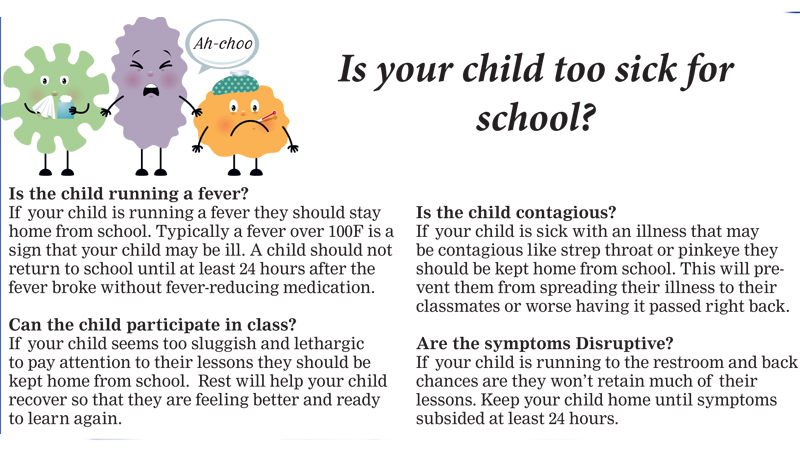Pratt: The truth about the flu
Published 12:00 am Wednesday, November 20, 2019
According to the latest findings from the Louisiana Department of Health and Hospitals, the incidence rate of flu and flu-like illnesses reported in Louisiana are more than double the regional baseline.
This means that the likelihood for any of us to catch the flu is higher than average this year, but those at most risk of serious complications and death are the elderly, people with health problems and/or compromised immune systems (such as patients undergoing chemotherapy), infants and children—even healthy children.
Despite studies proving that flu vaccinations are a lifesaver, only about 60% of children in the United States (and even fewer adults) are immunized each year. Fear and misinformation cause many families to take their chances with this potentially fatal respiratory virus. One recent survey from IPSOS Public Affairs, a social-research company, found that 16 percent of Americans consider the vaccine to be unsafe and 35 percent believe the vaccine causes the flu. As a result of these myths, children continue to die from an illness that in many cases can be prevented.
Trending
Because awareness and education are key to making lifesaving decisions about your family’s health, we gathered the facts to help bust the myths.
THE MYTH: The flu is not serious for children.
MYTH-BUSTER: Each year an average of 20,000 children under the age of five are hospitalized because of flu complications, according to the Centers for Disease Control and Prevention (CDC). The CDC reported that last season, child deaths due to flu hit an all-time high at 110. Even scarier is the fact that the CDC believes this number is an underestimate. Severe flu complications are most common in children younger than two. Children with chronic health problems, like asthma and diabetes, are at especially high risk of developing serious flu complications. An unvaccinated child is not only at risk but also can put others at risk. The American Academy of Pediatrics (AAP) and the Center for Disease Control and Prevention recommend annual influenza immunization for all people ages 6 months and older.
THE MYTH: My baby already gets too many shots.
MYTH-BUSTER: Doctors hear this from many parents, but they want moms and dads to understand that children ages 6 months to 5 years are at a high risk of serious flu-related complications like pneumonia, dehydration and hospitalization. A child’s immature immune system is still developing the ability to make antibodies to fight off sickness. That’s why kids 8 and under who are vaccinated for the first time need two separate doses at least 28 days apart. The first one primes their immune system, while the second starts providing protection. These children should receive their first dose as soon as the vaccine is available in their community, so that they have time to get the second dose before the flu season begins. The flu vaccine may be given at the same time as other vaccines, but at a different place on the body.
THE MYTH: We didn’t get our kids vaccinated right away, and now it’s too late.
MYTH-BUSTER: Flu can continue to spread as late as May. In fact, physicians on record have predicted a very long flu season this year in particular. Getting vaccinated early is still a good idea, though, because it takes about two weeks for the body to develop antibodies to fight flu.
THE MYTH: The vaccine can cause the flu.
MYTH-BUSTER: It’s impossible for the killed/inactivated viruses in the flu shot to cause illness. According to the CDC, the side effects—which are mild and short-lived compared to the actual flu—indicate that your body is building up antibodies to fight the flu. The most common side effects are pain and tenderness at the site of injection. Fever is also seen within 24 hours after immunization in approximately 10% to 35% of children younger than 2 years of age but rarely in older children and adults. These symptoms are usually mild and resolve on their own in a couple of days. If you or your child truly gets sick with the flu soon after being vaccinated, it usually means the virus had entered your system prior to or shortly after you got the vaccine.
THE MYTH: My child has an egg allergy and the vaccine will cause a reaction.
MYTH-BUSTER: Children with an egg allergy can safely get the flu shot from their pediatrician without going to an allergy specialist. Even those with a history of severe egg allergy don’t have to treat flu vaccine differently than getting any other vaccine, because these people are not likely to have a reaction to the flu vaccine.
Trending
THE MYTH: It won’t help. My vaccinated child still got sick last year.
MYTH-BUSTER: No vaccine offers complete immunity. This is especially true for influenza because virus strains are constantly changing. Experts have to guess months in advance which strains to target. The good news—they’ve gotten it right most flu seasons. Even when it isn’t a perfect match, the antibodies produced in response to the vaccine can protect against related flu viruses.
THE MYTH: The vaccine causes autism.
MYTH-BUSTER: A robust body of research continues to show that the influenza vaccine is safe and is not associated with autism. No factual study has ever shown a connection between autism and vaccines containing thimerosal—a mercury-based preservative that keeps bacteria and fungi from growing in multi-dose vials of the flu vaccine. In fact, the 1998 study that first raised the fear about the MMR vaccine was retracted in 2010 after it was proven that the research findings were fabricated and erroneous. Subsequent studies conducted on thousands of children indicate that both vaccinated and unvaccinated children are equally at risk for autism.
THE MYTH: I’m pregnant and getting vaccinated could harm my baby.
MYTH-BUSTER: Catching the flu while pregnant increases your risk of miscarriage and premature birth. Being sick is also dangerous for you. Your lungs and heart already work harder when you’re pregnant and influenza strains them even more, which can lead to pneumonia and hospitalization. Besides, when you get vaccinated, you pass flu-fighting antibodies on to your baby-to-be that can protect him or her up to four months after birth.
Though early in the flu season, so far in Louisiana, nearly 6,000 children between the ages of zero and four have been diagnosed with the flu or flu-like symptoms. The CDC reminds us that annual vaccinations (and hand washing) are the best way to protect children from the flu. We urge you to protect yourself and those you love by getting vaccinated. Children ages 3 and over through adults can make an appointment with their Primary Care Doctor to receive the vaccine or conveniently walk-in during Urgent Care hours. St. James Urgent Care is located in Lutcher in the Medical Plaza next to the hospital. St. James Urgent Care is open from 1 to 9 p.m. Monday through Friday and from 9 a.m. to 5 p.m. on Saturdays and Sundays. Patients coming to Urgent Care do not have to pay for an office visit. Simply bring in your insurance card. Cash pay is $30 per vaccine.
Mary Ellen Pratt is St. James Parish Hospital CEO. She can be reached at info@sjph.org.







